International & Area Studies
Celebrating Pasolini’s 100th Birthday

Italian film director, poet, writer and intellectual Pier Paolo Pasolini (1922-1975) would have turned 100 this year and Italy is not the only country celebrating his artistic achievements. Here in the Bay Area, the Italian Cultural Institute of San Francisco will present a series of public events exploring his life, his work, and his legacy during the months of September and October. The Berkeley Art Museum and Pacific Film Archive (BAMFA) has organized a retrospective of his films beginning the last week of October and continuing through November.
The UC Berkeley Library is home to 172 books authored or co-authored by Pasolini, 440 critical works about him, and 41 DVDs. In the Media Resources Center which is available by appointment only this semester, you’ll find more of his films than on Netflix, Amazon Prime, and Kanopy combined.
Calendar of Events:
September 1, 2022 – 11 AM
PIER PAOLO PASOLINI CORSARO Pier Paolo Pasolini Corsair
Marco Belpoliti presents his book Pasolini e il suo doppio (Pasolini and His Double)
In collaboration with the Leonardo Da Vinci Society SF
Venue: Zoom presentation
LEARN MORE & REGISTER
September 10, 2022
PASOLINI100 – HOMAGE TO PIER PAOLO PASOLINI FILM MARATHON
Experience the passion of Pasolini, the filmmaker who pushed the boundaries of politics, art and sexuality, at a screening of five of his most iconic films at the Castro Theatre. The retrospective will feature a special screening of Pasolini’s Medea starring soprano Maria Callas, and, in celebration of the joint centenaries of San Francisco Opera and Pasolini, San Francisco Opera will present a performance by soprano Mikayla Sager prior to the Medea screening.
This program is presented by Cinecittà, the Italian Cultural Institute of San Francisco, CinemaItaliaSF, and Artistic Soul Association, under the auspices of the Italian Consulate General of San Francisco.
Venue: The Castro Theatre
LEARN MORE & BUY TICKETS
October 5, 2022 – 6:30 PM
LA ROSADA E L’ARGILUT: The Places of Young Pasolini
A documentary exploring the places where Pier Paolo Pasolini lived and worked in his youth passing through the villages and countryside that the poet loved so deeply and depicted in his poetic and visual work.
Produced by Terra s.r.l. and directed by Roberta Cortella.
In cooperation with Regione Friuli Venezia Giulia and Association El Fogolar Furlan SF
Length: 35 min
Venue: Italian Cultural Institute of San Francisco @INNOVIT Spaces
Free admission, limited seating available
LEARN MORE & REGISTER
October 25, 2022 – 6:30 PM
ATREMIS DANZA | FUOCHI SEGRETI (Secret Fires)
A contemporary dance performance in celebration of Pasolini100
A production of Compagnia Artemis Danza/Monica Casadei, with the support of Ministero della Cultura, Regione Emilia Romagna
Presented by the Italian Cultural Institute of San Francisco
Venue: Brava Theatre, 2781 24th St., San Francisco
Free admission, limited seating available
LEARN MORE & REGISTER
October 22-November 27, 2022
PASOLINI RETROSPECTIVE @BAMPFA Berkeley
Copresented by BAMPFA and Cinecittà, Rome. The retrospective has been organized by Susan Oxtoby, BAMPFA, and Camilla Cormanni, Paola Ruggiero, Marco Cicala, Germana Rusico, Cinecittà. Presented in association with the Ministry of Culture of Italy.
LEARN MORE & BUY TICKETS
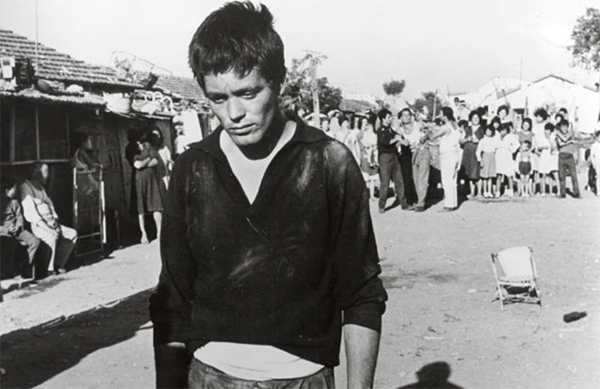
In Memoriam: Mikhail Gorbachev- the former president of the USSR
Please excuse this long post! No one likes to read these long posts anymore! I remember the Moscow Putsch in August 1991, when Mikhail S. Gorbachev, then the president of the USSR, was placed under house arrest and deposed for a time. I remember how Ronald Reagan pronounced in Berlin words inviting him to tear down that wall and how the times have changed since then. Today, some leaders in our homeland have asked for a wall and some tariffs on goods from other countries. So much for the politics.
After all, some aspects of politics are what muddies the water! I remember Gorbachev’s controversial fight against Alcoholism in the Soviet Union and how the zealots from Stud-Soviets used to show up without an announcement to inspect our dormitory rooms for evidence such as empty bottles of Vodka or beers. Students were let go from academic institutions to find an empty bottles. I remember his rebuilding (perestroika) of the Soviet Union. Now we have our Build Back Better! Not that these are similar situations.
However, we have tons of books about the Soviet Union and works authored by president Gorbachev. In memoriam! Прощайте, Уважаемый Михайл Сергеевич Горбачёв!
I leave you with the clip about the Soviet legacies, in which former UC Berkeley professor and historian Yuri Slezkine speaks!
Economic Survey of Latin America and the Caribbean 2022: Trends and challenges of investing for a sustainable and inclusive recovery
The United Nation’s ECLAC has published a 2022 report on trends and challenges of investing for a sustainable recovery in Latin America and the Caribbean. Below is the self-description, “The 2022 edition of the Economic Survey of Latin America and the Caribbean consists of three parts. Part I outlines the region’s economic performance in 2021, analyses trends in the early months of 2022, and the outlook for growth for the year. It examines the external and domestic factors that have influenced the region’s economic performance in 2021, trends for 2022, and how these factors will affect economic growth in the coming years.
Part II of this edition presents some region’s main challenges in investing for sustainable and inclusive economic growth. It analyses the trends in total investment over the last 70 years and highlights the profound change brought about by the 1980s debt crisis, with a slowdown in investment from the 1990s onwards.
Part III of this publication may be accessed on the Economic Commission for Latin America and the Caribbean (www.eclac.org). It contains the notes relating to the economic performance of Latin America and the Caribbean countries in 2021 and the first half of 2022, together with their respective statistical annexes. The date for updating this publication’s statistical information was 15 July 2022.”
Please click on the image to access this Open Access publication.
New book by faculty: Afro-Atlantic Catholics : America’s First Black Christians–by Professor Jeroen DeWulf
It is my great honor and privilege to introduce readers of this blog to a new book by Professor Jeroen DeWulf titled “Afro-Atlantic Catholics America’s First Black Christians.” The book will be out in early August. The book is long needed to provide a holistic view of the influence of African Catholics on the historical development of Black Christianity in America during the seventeenth century.
The publisher is the University of Notre Dame Press. The description reads, “Black Christianity in America has long been studied as a blend of indigenous African and Protestant elements. Jeroen Dewulf redirects the conversation by focusing on the enduring legacy of seventeenth-century Afro-Atlantic Catholics in the broader history of African American Christianity. With homelands in parts of Africa with historically strong Portuguese influence, such as the Cape Verde Islands, São Tomé, and Kongo, these Africans embraced variants of early modern Portuguese Catholicism that they would take with them to the Americas as part of the forced migration that was the transatlantic slave trade. Their impact on the development of Black religious, social, and political activity in North America would be felt from the southern states as far north as what would become New York.
Dewulf’s analysis focuses on the historical documentation of Afro-Atlantic Catholic rituals, devotions, and social structures. Of particular importance are brotherhood practices, which were critical in disseminating Afro-Atlantic Catholic culture among Black communities, a pre-Tridentine culture and wary of external influences. These fraternal Black mutual-aid and burial society structures were critically important to the development and resilience of Black Christianity in America through periods of changing social conditions. Afro-Atlantic Catholics show how a sizable minority of enslaved Africans actively transformed the American Christian landscape and would lay a distinctly Afro-Catholic foundation for African American religious traditions today. This book will appeal to scholars in the history of Christianity, African American and African diaspora studies, and Iberian studies.”
Professor Dewulf’s groundbreaking research on how one can reflect on early issues surrounding the conceptualization of diversity, faith, race, and belonging in the context of our continent today while not straying away from in-depth historiographical narrative serves as an archive of memory narrative.

New Catalan literature
Here’s a selection of Catalan literature titles hot of the press with some not even on the library shelves quite yet. Prizewinners include Maria Barbal, Maite Salord, Anna Gas Serra, Xavier Mas Craviotto, and Laia Viñas. Reviews for all can be read on the open access journal Càracters published by the Universitàt de Valencia.
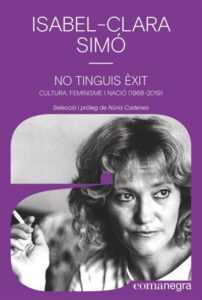
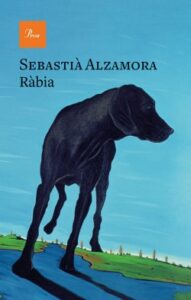

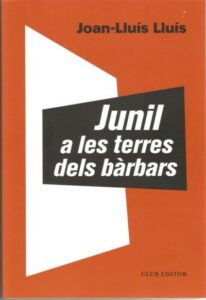
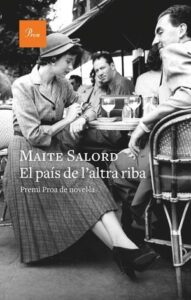
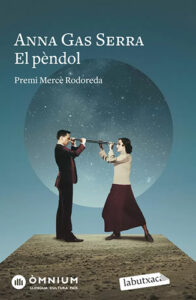
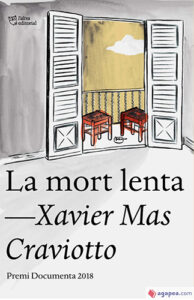
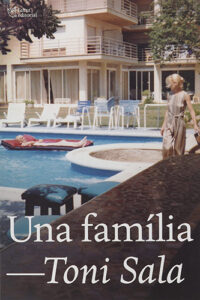
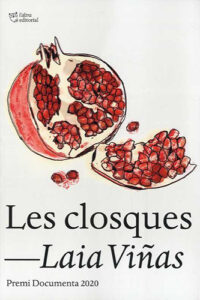
 And don’t forget to check out the Catalan Studies research guide.
And don’t forget to check out the Catalan Studies research guide.
New book by Estelle Tarica
Holocaust Consciousness and Cold War Violence in Latin America proposes the existence of a recognizably distinct Holocaust consciousness in Latin America since the 1970s. Community leaders, intellectuals, writers, and political activists facing state repression have seen themselves reflected in Holocaust histories and have used Holocaust terms to describe human rights atrocities in their own countries. In so doing, they have developed a unique, controversial approach to the memory of the Holocaust that is little known outside the region. Estelle Tarica deepens our understanding of Holocaust awareness in a global context by examining diverse Jewish and non-Jewish voices, focusing on Argentina, Mexico, and Guatemala. What happens, she asks, when we find the Holocaust invoked in unexpected places and in relation to other events, such as the Argentine “Dirty War” or the Mayan genocide in Guatemala? The book draws on meticulous research in two areas that have rarely been brought into contact—Holocaust Studies and Latin American Studies—and aims to illuminate the topic for readers who may be new to the fields.
[from publisher’s site]
Estelle Tarica is Professor of Latin American Literature and Culture and former Chair of the Latin American Studies Program at UC Berkeley. She is incoming Chair of the Department of Spanish & Portuguese. Her previous book The Inner Life of Mestizo Nationalism concers the discourse of indigenismo and mestizaje in Mexico, Peru and Bolivia focusing on the work of José María Arguedas, Rosario Castellanos and Jesús Lara. Her articles have appeared in edited volumes and in the journals Chasqui, Revista de Crítica Literaria Latinoamericana, Latin American Literary Review, Journal of Latin American Studies, Política Común and Yale French Studies, among others.
She discussed her latest book with Alejandra Decker (Hispanic Languages and Literatures, UCB) and Robert Kaufman (Comparative Literature, UCB) on April 7 through the Center for Latin American Studies.
Holocaust Consciousness and Cold War Violence in Latin America.
Albany: State University of New York Press, 2022.
Orienting Os Lusíadas @ 450
This online bibliography brings together resources and scholarship to mark the 450th anniversary of the publication of The Lusiads (Os Lusíadas), the magnum opus of Luís Vaz de Camões (c. 1524/5–1580), an epic that “sings” the story of Portugal’s colonial expansion. Long revered as the most important work in the Portuguese language, it draws inspiration from Greco-Roman epics such as Virgil’s Aeneid and Homer’s Iliad and Odyssey as well as Persian and Hindu mythology. The ten cantos which structure the long narrative poem are in ottava rima and total 1,102 stanzas.
The Lusiads form a key pillar of an entire mythos constructed around nostalgia for the empire, though one that has received increasing critical attention in scholarly and political circles alike. Anthony Soares, for example, highlights the material and bodily violences that lie behind discursive elements of the text’s poetic cantos. Other scholars have traced the Persian and Indian lyric influences in the text (notably Hāfiz and Omar Khayyam), interpreting the national epic against itself. Some have even identified critiques of Empire, as well as satirical treatments of etymologies and ancestral pretenses, within the text itself, calling into question the poet’s own consent for his work to be interpreted as the uncritical pro-imperialist national epic, par excellence. As 2022 marks the 450th anniversary of its publication, new scholarship (see Camões at Harvard: Navigating 450 years of Os Lusíadas) will continue to critically resituate The Lusiads both in its historical moment and in Portuguese and global literature today.
We hope you make use of this bibliography which highlights resources in UC Berkeley’s distinguished Portuguese collection but also which provides access to open and freely available sources online.
Cameron Flynn
Ph.D. student, Romance Languages and Literatures
Claude Potts
Librarian for Romance Languages Collections
Languages of Berkeley exhibition archived on Pressbooks and eScholarship
The Languages of Berkeley: An Online Exhibition

The Languages of Berkeley: An Online Exhibition has now been archived as a catalog in both the Pressbooks open publishing platform and eScholarship—the UC system’s open access repository. Because of the impermanence of the blog environment in which it was created as a sequential exhibit from September 2019 to August 2020, we wanted the content of the multi-dimensional project to live on and remain accessible.
This library exhibition comprises short essays of nearly all of the 59 modern and ancient languages that are currently taught across 14 departments on campus plus a dozen more languages that contributors wished to include. More than 45 faculty, lecturers, librarians, staff, and students contributed to this project which celebrates the magnificent diversity of languages that advance research, teaching, and learning at the University of California, Berkeley.
Since its founding in 1868, students and faculty at UC Berkeley have concerned themselves with a breathtaking range of languages. In support of teaching and research, the University Library, which collects and preserves materials in all languages, now boasts a collection of nearly thirteen million volumes. It is among the largest academic libraries in the U.S. with more than one third of its print resources in more than 500 non-English languages.
Claude Potts,
Librarian for Romance Language Collections
UC Berkeley
 Follow future activities on Instagram.
Follow future activities on Instagram.
The Languages of Berkeley is a dynamic online sequential exhibition celebrating the diversity of languages that have advanced research, teaching and learning at the University of California, Berkeley. It is made possible with support from the UC Berkeley Library and is co-sponsored by the Berkeley Language Center (BLC).
Follow The Languages of Berkeley!
Subscribe by email
Contact/Feedback
ucblib.link/languages
Cinco de Mayo (El Día de la Batalla de Puebla) through books
Each year, Cinco de Mayo (El Día de la Batalla de Puebla) is celebrated in the United States and Mexico to commemorate the victory of Mexico over the invading imperial French forces at the Battle of Puebla. While today, many “Western” powers adhere to the democratic principles of governance, in the 19th century, most of them practiced imperialism without much guilt. We all know that the self-ascribed civilizing missions of these Western European and Russian Imperial forces, including our democratic American expeditionary force in the Phillippines and other places, remain well-documented in the books and news media of the time. After all, David did overpower Goliath; such was the case for ill-equipped Mexican forces who triumphed over better-equipped French forces. The battle took place 160 years ago, on May 5, 1862, outside of Puebla. Here are some books that would refresh our memories about the significance of Cinco de Mayo.
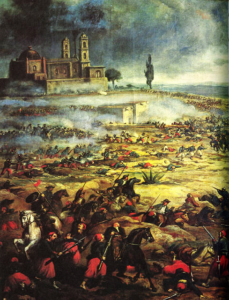
Some subject designations like the one below will help us quickly locate the books from our collections.
European Intervention in Mexico (1861-1867)
Mexico — History — European intervention, 1861-1867
France — Foreign relations — Mexico
Mexico — Foreign relations — France
Mexico — Foreign relations — 1861-1867
France — History — Second Empire, 1852-1870
And below are a few books that might be of interest to our readers.
Cluseret, G. Mexico, and the Solidarity of Nations. New York: Blackwell, 1866. Print.
Chevalier, Michel. L’expédition du Mexique. Paris: E. Dentu, 1862. Print.
And here is a clip that one might watch to understand further the complex nature of European involvement in Mexican affairs.
New UN Archives Geneva Platform
The United Nations Library & Archives Geneva is pleased to announce the new UN Archives Geneva Platform launch. This new online platform makes it easier to navigate and search approximately ten linear kilometers of archives managed by the UN Library & Archives Geneva, including different fonds such as 19th-century peace movements, the League of Nations, UN Geneva, and additional UN entities based in Geneva.
Thanks to the LONTAD project, the platform provides access to over 10 million digitized pages of the League of Nations archives. By 2022, the entirety of the archives of the League of Nations will be available online (including photographs and maps).
The launch of the platform enables researchers to search exceptional primary sources. It also opens new ways of conducting research in the archives. More information is available here.
With the new platform, we are now offering free tailored online presentations and trainings for researchers and students to explain the structure of the UN archives in Geneva, how the platform works, the material available online and the documents which are still not digitized but available for consultation in site. These presentations can be provided for faculty meetings, seminars and courses, or whatever setting is desirable. Catering to your needs, our specialists can present the wealth of archival documents – digitized and physical – available at the UN Library & Archives Geneva, explain how to use the platform, and show the work of the Institutional Memory Section. For further information, do not hesitate to contact us: https://ask.unog.ch/archives
Contact Info:
Pierre-Etienne Bourneuf, UN Library & Archives Geneva
Palais des Nations, 8-14 Avenue de la Paix, 1211 Genève
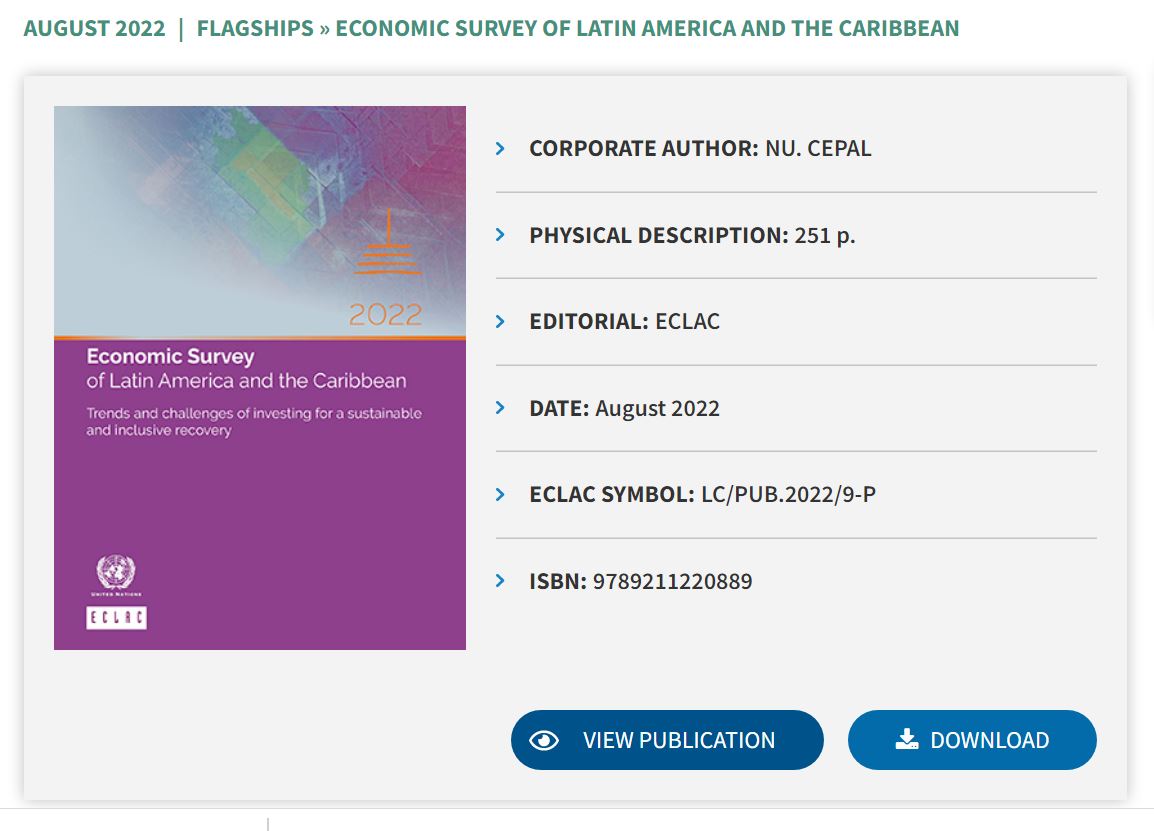
![[book cover]](https://update.lib.berkeley.edu/wp-content/uploads/2022/06/tarica.png)
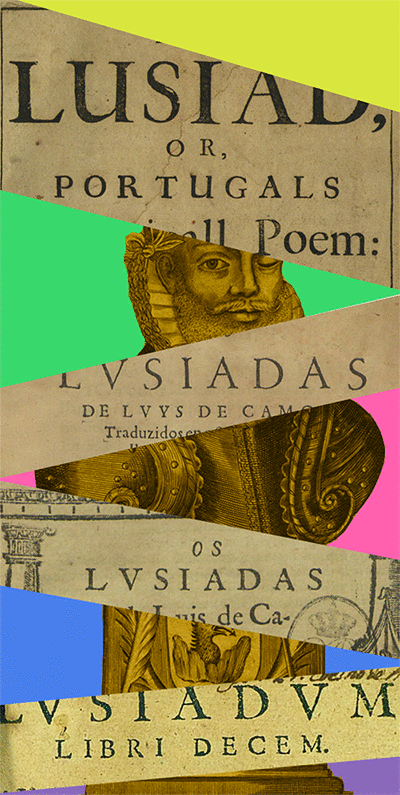
![The Languages of Berkeley [fan]](https://update.lib.berkeley.edu/wp-content/uploads/2019/02/fan_languages-450px.jpg)
